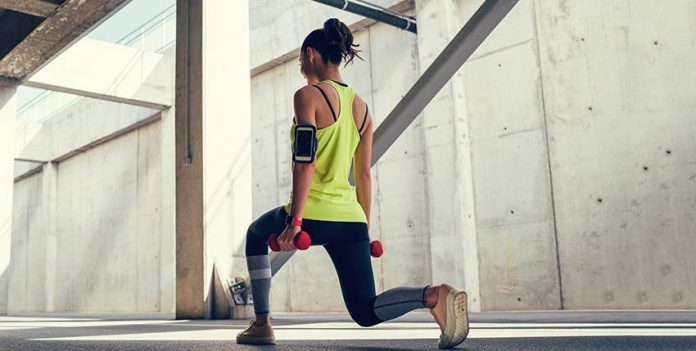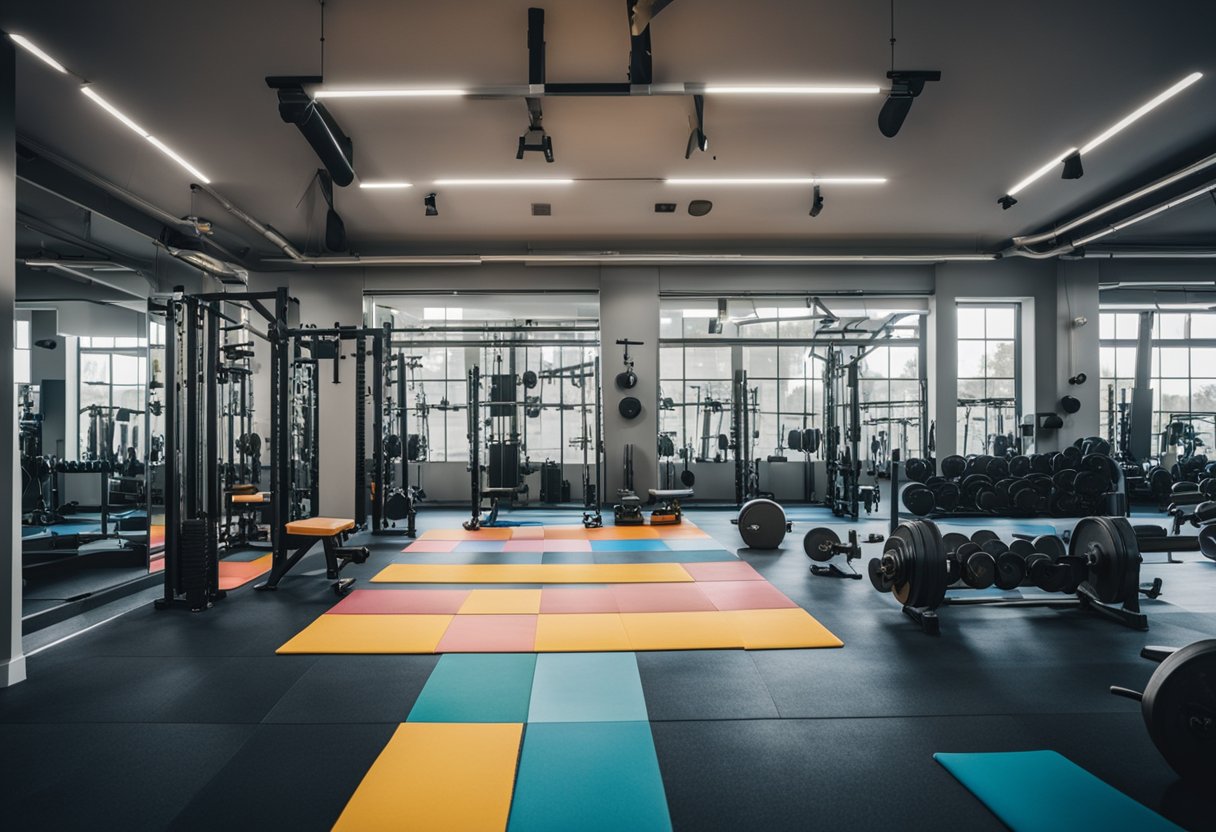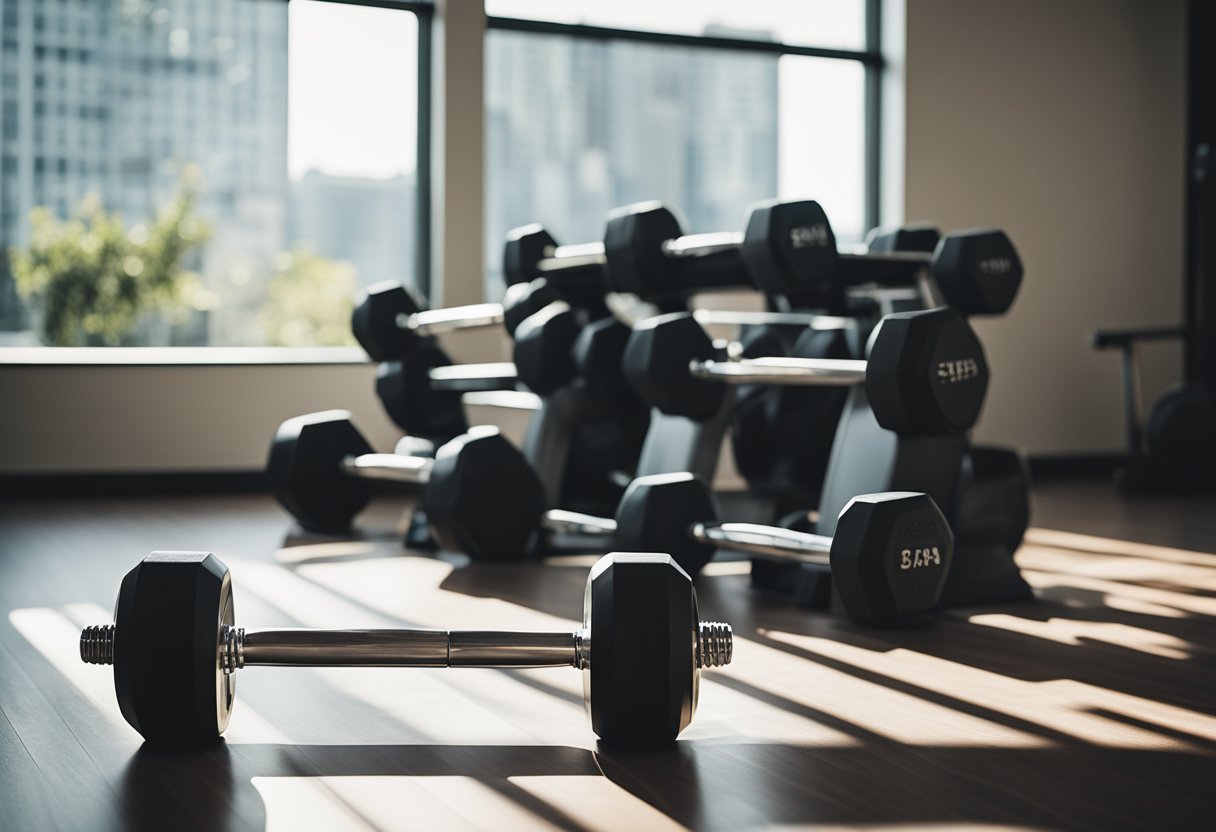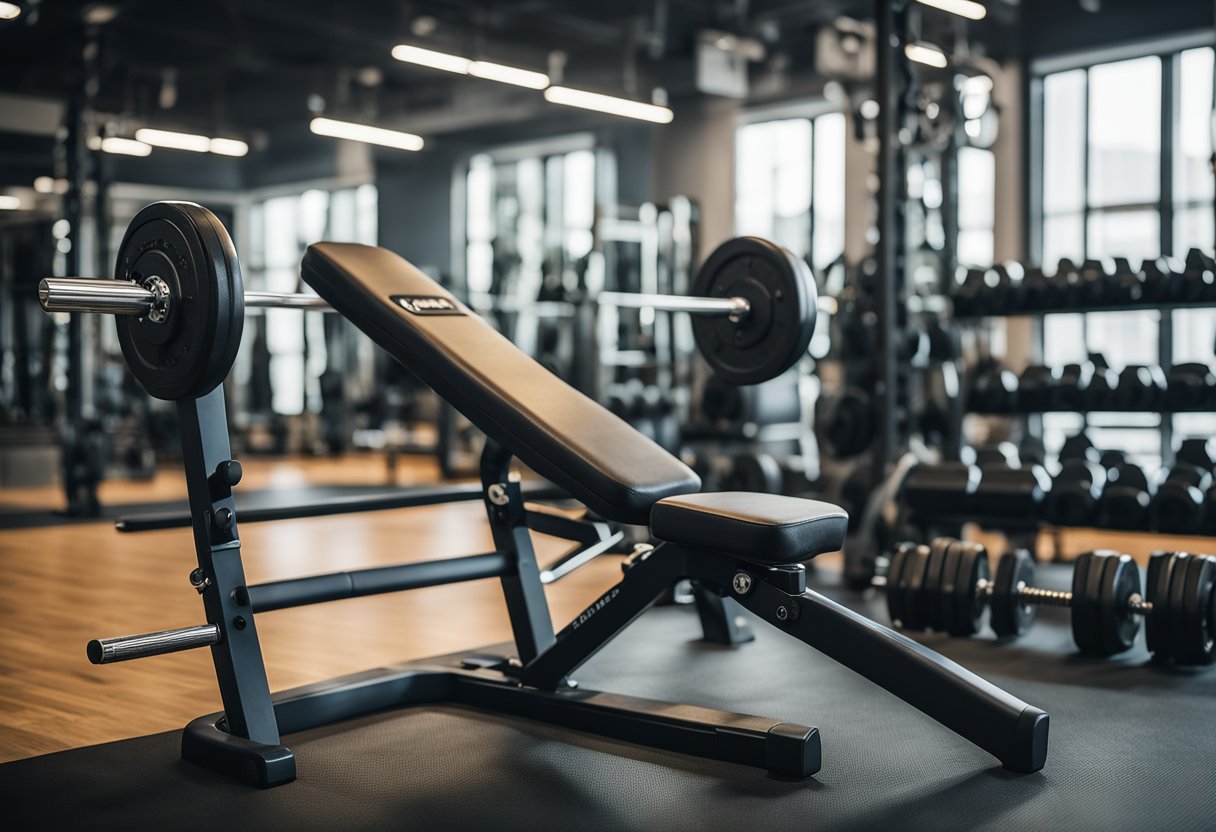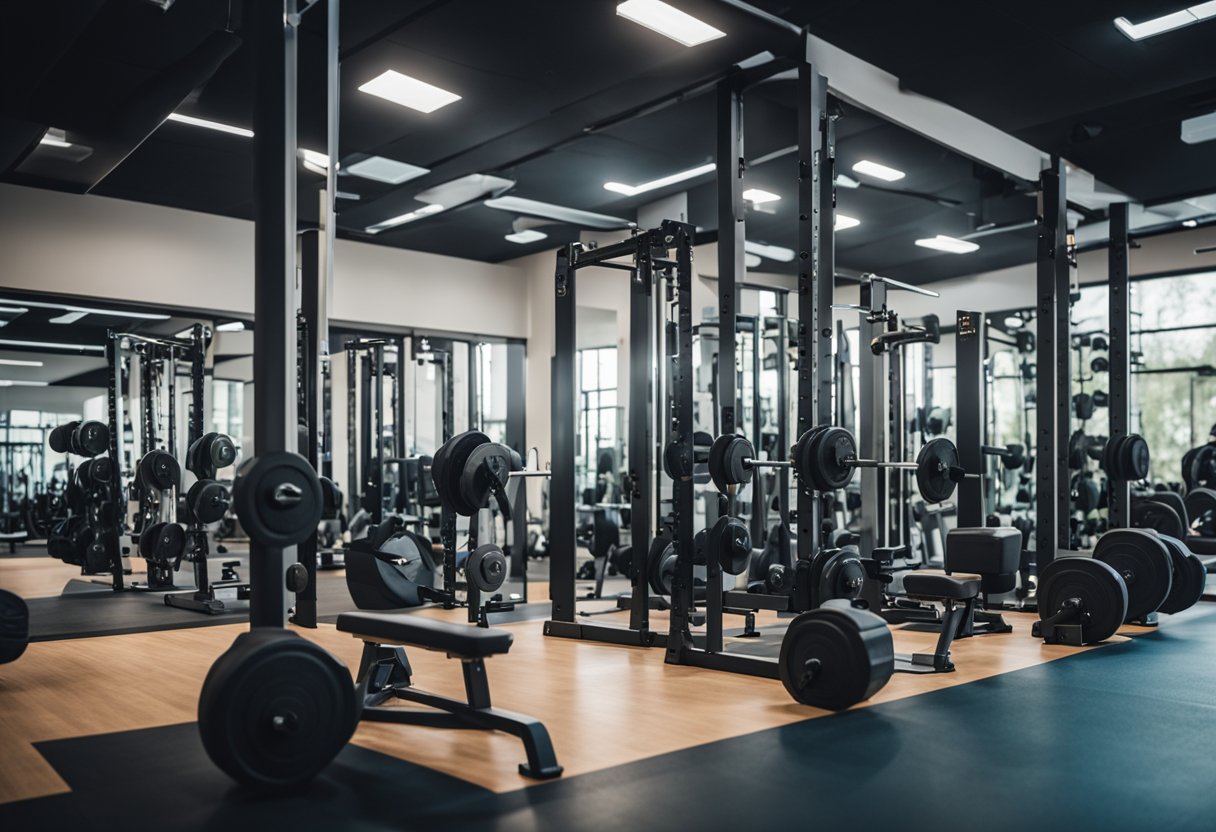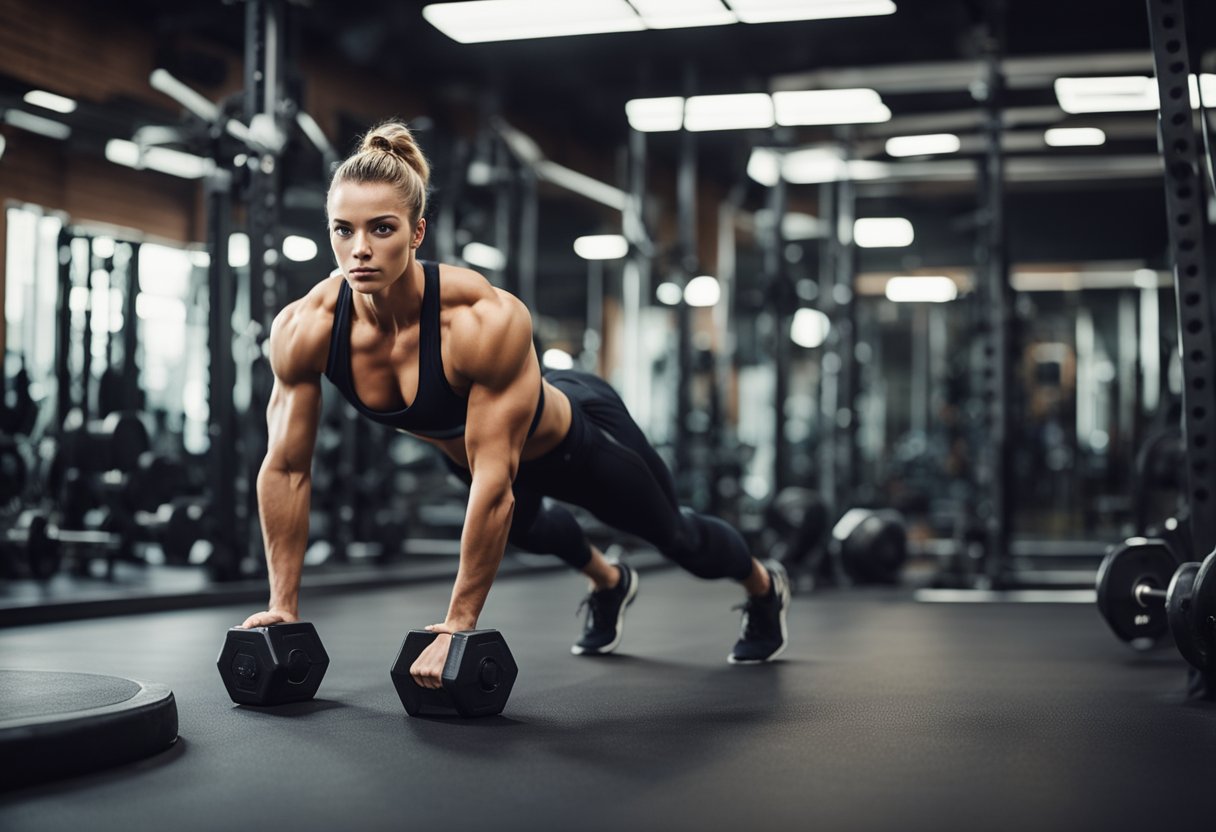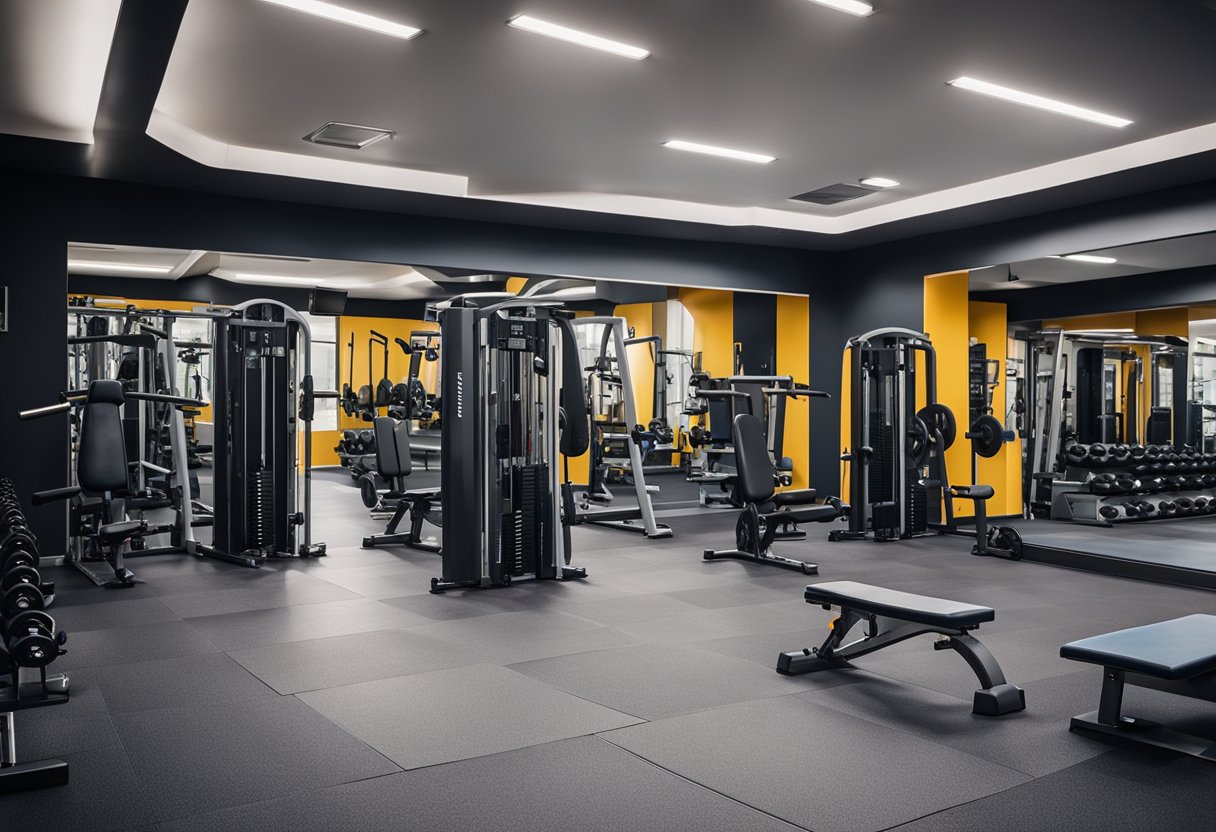Carefully design Starting Fitness. Fitness is a crucial step to consider a greater chance of success than failure to achieve your fitness goals.
This parallel is as you build a solid foundation for your home for many years.
STime, effort, and good planning remain remain, but I think it is worth the investment.
I’ll give you two essential fitness beginner weight training guidelines to consider in your short-term and long-term education.
Beginners Fitness Weight Training: A Comprehensive Guide
Fitness is a vital aspect of a healthy lifestyle, and weight training is an excellent way to build strength and improve overall fitness. However, for beginners, the world of weight training can be intimidating and overwhelming. This article will provide a comprehensive guide to beginners’ fitness weight training, covering everything from the basics of weight lifting to creating a workout plan that best suits individual needs.
Before diving into weight training, it’s essential to understand the basics of fitness. This includes understanding the importance of warming up, stretching, and cooling down. Additionally, it’s crucial to have a clear understanding of the different muscle groups and how they work. This knowledge will help beginners to develop an effective workout plan that targets specific muscle groups while avoiding injury.
Once the basics of fitness are understood, beginners can begin to explore weight training. This can include using weight machines, free weights, or bodyweight exercises. It’s essential to start with lighter weights and gradually increase the weight as strength improves. This will help to prevent injury and ensure that beginners can progress safely and effectively.
Beginner’s Strength Training: How to Get Started
By that, I mean using all types of education and being limited, not getting stuck with a kind of device.
Many students are just beginning to use resistance machines to end their lives, which can cause more harm than good to you.
Also, you can limit your muscle growth potential regarding strength and muscle mass.
On the other hand, if you have a mix of training and exercises with weight machines, a fitness studio, or your bodyweight, dumbbells, and resistance bands and tubes, you do justice to your body.
You are exposed to various stimuli and a wide range of motion that he needs.
Weight Training Moving
Another stone is necessary to add funds.
There is no perfect or just the right kind of strength training for your body. But this is just the opposite.
Thanks to the Permanent Mission, the body must repeatedly adapt to different training variables for motivation.
Let me give you a realistic example of what I’m talking about …
If your goal is 4 pounds of muscle to get and do 7-12 repetitions, many scientists and trainers recommend weightlifting on the right track.
However, you want to change the learning variables in higher education capacity (15-100 repetitions per exercise).
Read Next – Fitness Training For Seniors
Beginner Workout Routine at Home for Women & Men
In this type of muscle training, you can create a higher density of capillaries, leading to better nutrition and achieving muscle growth.
Simultaneously, you also want a power-type weight lifting switched to support the neuromuscular system after a few weeks.
These recommendations could effectively operate heavy lifting and muscle mass.
Mohamad examinations in the field of nutrition and fitness and wellness for women.
You can also look at his final journey shoes, which he studied, and he lists several hiking boots.
Read Next – Best Kohls Mens Tennis Shoes On Sale
Getting Started with Weight Training
Starting a weight training program can be intimidating for beginners, but with the right approach, it can be a rewarding and effective way to improve overall fitness and strength. Here are some tips to help beginners get started with weight training.
Understanding the Basics
Before starting any weight training program, it’s important to understand the basics of strength training. This includes the types of exercises, sets, reps, and weights involved in weight training. It’s also important to understand the difference between training for strength and training for muscle gain or weight loss.
A beginner should start with a simple plan that focuses on compound exercises such as squats, deadlifts, bench press, and overhead press. Compound exercises work multiple muscle groups at once, making them more efficient for beginners. It’s also important to start with lighter weights and focus on proper form and technique to avoid injury.
Setting Realistic Goals
Setting realistic goals is essential for beginners in weight training. Goals should be specific, measurable, achievable, relevant, and time-bound. For example, a beginner may set a goal to increase the weight they lift by 5% every week for the next 12 weeks.
It’s important to remember that progress takes time and consistency. Beginners should not expect to see significant muscle gain or weight loss in the first few weeks of training. Instead, they should focus on building a strong foundation of strength and technique.
By following these tips and working with a qualified trainer at a gym, beginners can build confidence and progress in their weight training journey.
Essential Equipment
Beginners fitness weight training requires a few essential pieces of equipment to get started. Here are some of the most important pieces of equipment to consider:
Choosing the Right Weights
When it comes to weight training, choosing the right weights is crucial. It’s important to choose weights that are challenging but not too heavy, as this can lead to injury. Dumbbells, barbells, and kettlebells are all great options for beginners. It’s best to start with lighter weights and gradually work your way up as you become stronger.
Additional Gear
In addition to weights, there are a few other pieces of gear that can be helpful for beginners. Resistance bands are a great way to add variety to your workouts and can be used to target specific muscle groups. Weight machines are also a good option for beginners, as they provide a guided range of motion that can help prevent injury.
Gloves can also be helpful for weight training, as they provide a better grip on the weights and can help prevent blisters. Weightlifting shoes are another option to consider, as they provide additional support and stability during exercises like squats and deadlifts.
Overall, beginners fitness weight training requires a few essential pieces of equipment to get started. By choosing the right weights and additional gear, beginners can start building strength and achieving their fitness goals.
Fundamentals of Training
Learning Proper Form
One of the most important aspects of beginners fitness weight training is learning proper form. It is essential to avoid injury and maximize the benefits of each exercise. Beginners should start with light weights and focus on mastering the correct form before increasing weight. A neutral spine position should be maintained throughout each exercise to prevent injury and ensure proper muscle activation.
Types of Exercises
Beginners should focus on compound exercises that work multiple muscle groups at once. Exercises such as squats, deadlifts, bench press, and lunges are great examples of compound exercises. These exercises help build overall muscle strength and can be modified to target specific muscle groups. Calf raises and other isolation exercises can be added to target specific muscles after mastering compound exercises.
Designing Your Workout Program
When designing a workout program, beginners should focus on resistance training and strength training. Aerobic exercises can be added to the program to improve cardiovascular health and aid in weight loss. Rest days are also important to allow muscles to recover and prevent injury. A proper warm-up and cool down should be included in each workout to prepare the body for exercise and prevent injury.
Overall, beginners fitness weight training requires a focus on proper form, compound exercises, and a well-designed workout program. With dedication and consistency, beginners can build strength and improve their overall fitness level.
Executing Exercises Correctly
When it comes to weight training, executing exercises correctly is essential for beginners to avoid injury and maximize results. Here are some tips for executing exercises correctly for upper body workouts, lower body workouts, and core training.
Upper Body Workouts
For chest exercises such as chest press, it’s important to keep the elbows at a 90-degree angle and avoid locking them out. For back exercises, such as lat pulldowns, focus on pulling the shoulder blades down and back and keeping the chest up. For shoulder exercises, such as dumbbell shoulder press, avoid shrugging the shoulders and keep them down and relaxed.
When performing bicep curls and tricep extensions, keep the elbows close to the body and avoid swinging them. It’s also important to focus on the muscle being targeted and avoid using momentum to lift the weight.
Lower Body Workouts
For glute exercises such as hip thrusts, focus on squeezing the glutes at the top of the movement and avoid arching the lower back. For hamstring exercises such as deadlifts, keep the back straight and hinge at the hips to lower the weight.
For quad exercises such as squats and lunges, keep the knees behind the toes and avoid letting them collapse inward. When performing leg press, avoid locking out the knees at the top of the movement and keep the weight under control.
Core Training
For ab exercises such as crunches, avoid pulling on the neck and focus on lifting the shoulders off the ground using the abdominal muscles. For lower back exercises such as back extensions, avoid arching the back and focus on lifting using the lower back muscles.
Core stability exercises such as planks and side planks should be performed with a neutral spine and engaged core muscles. It’s also important to avoid holding the breath and focus on breathing in a controlled manner.
By following these tips and focusing on proper form, beginners can safely and effectively execute weight training exercises for a stronger and healthier body.
Nutrition and Recovery
Fueling Your Body
Proper nutrition is crucial for beginners engaging in weight training. Without adequate fuel, the body cannot perform at its best, and recovery time is lengthened. It is recommended to consume a balanced diet consisting of lean protein, complex carbohydrates, and healthy fats. Aiming for a caloric surplus is also important for beginners looking to build muscle mass.
Protein is essential for muscle repair and growth. It is recommended to consume 1 gram of protein per pound of body weight per day. Good sources of protein include chicken, fish, lean beef, eggs, and plant-based sources such as beans and tofu.
Complex carbohydrates provide energy for workouts and help replenish glycogen stores. Good sources of complex carbohydrates include whole grains, fruits, and vegetables.
Healthy fats are important for hormone production and joint health. Good sources of healthy fats include avocados, nuts, seeds, and fatty fish.
Rest and Recovery
Rest and recovery are just as important as nutrition for beginners engaging in weight training. It is recommended to take at least one rest day per week to allow the body to recover. During rest days, it is important to focus on proper hydration and nutrition to aid in recovery.
Proper hydration is crucial for muscle recovery and overall health. Aim to drink at least 8-10 glasses of water per day and more if engaging in intense workouts.
Getting adequate sleep is also important for recovery. Aim for 7-9 hours of sleep per night to allow the body to repair and rebuild muscle tissue.
In conclusion, proper nutrition and recovery are essential for beginners engaging in weight training. A balanced diet consisting of lean protein, complex carbohydrates, and healthy fats is important for fueling the body, while rest and recovery aid in muscle repair and growth.
Progress and Adaptation
Tracking Your Progress
One of the most important aspects of weight training is tracking progress. Without tracking, it can be difficult to know if you are making progress or not. There are many ways to track progress, including keeping a workout journal or using a fitness app. Tracking progress can help you stay motivated and make adjustments to your workout routine as needed.
One way to track progress is by tracking your starting weight and the weight you are currently lifting. This can help you see how much progress you have made over time. Additionally, tracking other metrics such as body fat percentage, muscle mass, and strength can also be helpful.
When to Increase Resistance
As you progress in your weight training journey, it is important to continually challenge yourself. This can be achieved through progressive overload, which involves gradually increasing the resistance or weight you are lifting over time. This can help prevent plateauing and promote muscle growth.
It is important to increase resistance gradually and safely. A good rule of thumb is to increase resistance by 5-10% each week. It is also important to listen to your body and not push yourself too hard, as this can lead to injury.
When deciding when to increase resistance, it is important to consider your current fitness level, starting weight, and overall goals. It is also important to vary your workout routine to prevent boredom and ensure that all muscle groups are being targeted. By using progressive overload and tracking progress, beginners can achieve their fitness goals and continue to make progress over time.
Safety and Injury Prevention
When starting a weight training program, safety should always be a top priority. This is especially true for beginners who may not be familiar with proper techniques and equipment use. Here are some tips to help prevent injuries:
Warm-Up
Before beginning any weight training session, it is important to warm up properly. A good warm-up should last at least 5-10 minutes and include dynamic stretching exercises that target the muscles you will be working. This will help increase blood flow to the muscles, improve flexibility, and reduce the risk of injury.
Proper Form
Using proper form is essential for preventing injuries. When lifting weights, it is important to maintain proper alignment of the joints and spine. This can be achieved by keeping the feet shoulder-width apart, bending the knees slightly, and keeping the back straight. It is also important to avoid locking the joints or hyperextending them.
Gradual Progression
Beginners should start with lighter weights and gradually increase the weight as they become stronger and more comfortable with the exercises. This will help prevent injuries caused by overexertion and muscle strain.
Safety Equipment
Using safety equipment such as weightlifting gloves, wrist wraps, and weight belts can help prevent injuries. These items provide support and protection for the joints and muscles, reducing the risk of strains and sprains.
Rest and Recovery
Rest and recovery are just as important as the workout itself. It is important to allow the muscles time to recover between workouts. This means taking at least one day off between weight training sessions and getting enough sleep at night. Adequate rest and recovery will help prevent injuries caused by overuse and fatigue.
By following these safety tips, beginners can minimize the risk of injury and enjoy the benefits of weight training.
Leveraging Online Resources
Beginners who are interested in fitness weight training can benefit from a variety of online resources. These resources can provide valuable information and guidance on workout programs, nutrition, and form.
One option is to seek out a personal trainer who offers online coaching. This can be a convenient and cost-effective way to receive personalized guidance and support. Many personal trainers offer customized workout programs and nutrition plans, as well as virtual coaching sessions.
Another option is to utilize workout programs that are available online. There are many reputable websites and apps that offer a variety of workout programs, ranging from beginner to advanced. These programs often include instructional videos and detailed descriptions of each exercise, making it easier for beginners to learn proper form.
In addition to workout programs, online resources can also provide valuable information on nutrition. Many websites offer recipes and meal plans that are tailored to specific fitness goals, such as weight loss or muscle gain.
Overall, leveraging online resources can be a great way for beginners to get started with fitness weight training. By utilizing the expertise of personal trainers and the convenience of online workout programs and nutrition resources, beginners can feel confident and knowledgeable as they begin their fitness journey.
Frequently Asked Questions
What are the essential exercises for a beginner’s strength training routine?
For a beginner’s strength training routine, it is essential to focus on compound exercises that work multiple muscle groups simultaneously. Some of the essential exercises include squats, lunges, deadlifts, bench press, overhead press, and rows.
What equipment is necessary for basic weight training at home?
For basic weight training at home, you will need a few essential pieces of equipment, including dumbbells, a barbell, weight plates, a bench, and a squat rack. You can also invest in resistance bands, stability balls, and other accessories to add variety to your workouts.
How should a beginner structure their gym workout plan?
A beginner should structure their gym workout plan around compound exercises that work multiple muscle groups, starting with a warm-up and then moving on to strength training exercises. It is also essential to incorporate rest days into the workout plan to allow the muscles to recover and grow.
What is a suitable frequency of workouts for a beginner starting weight training?
For a beginner starting weight training, it is recommended to start with two to three workouts per week, with at least one rest day in between each workout. As the body adapts to the stress of weight training, the frequency and intensity of workouts can be gradually increased.
How can a beginner determine the appropriate amount of weight to use when starting weight training?
A beginner can determine the appropriate amount of weight to use when starting weight training by selecting a weight that allows them to perform 8-12 reps with good form. If the weight is too light, they can increase the weight, and if it is too heavy, they can decrease the weight.
What are some effective strength training workouts for beginners to do at home?
Some effective strength training workouts for beginners to do at home include bodyweight exercises like push-ups, squats, lunges, and planks, as well as exercises using dumbbells and resistance bands. It is essential to focus on proper form and gradually increase the intensity and weight of the exercises over time.
17 Min Strength Training Workout for Beginners
Read Next – Best Shoes For Beginner Overweight Runners
This blog post is about the benefits of weight training for beginners. It points out that it will help them lose fat, build muscle, and increase their metabolism.
You should start by building a proper routine with the right amount of reps, sets, rest time between exercises, and weights used to get results fast!
Your goal may differ from mine, but I hope this has helped you make your decisions easier when starting something new or changing you.
Fitness for Beginners: Low Impact Beginner Workout
Cardio Exercises for Beginners - Low Impact Workout For Weight Loss
15 Minute Workout for Beginners
Weight Training: 2 Books Bundle - Strength Training Program 101 + Strength Training Nutrition 101
Dark Iron Fitness Genuine Leather Pro Weight Lifting Belt for Men and Women - Durable Comfortable and Adjustable with Buckle - Stabilizing Lower Back Support for Weightlifting
$39.09 in stock
1 used from $38.70
Strength Training: The Complete Step-by-Step Guide to a Stronger, Sculpted Body
$18.88 in stock
52 used from $2.25
Fitness and Strength Training for All Sports: Theory Methods Programs
Strength Training Exercises for Women: Tone, Sculpt, and Stay Strong for Life
53 used from $2.24
Bodyweight Strength Training: 12 Weeks to Build Muscle and Burn Fat
$10.99 in stock
17 used from $3.50
Meal Prep Recipe Book: 50 Simple Recipes For Health & Fitness Nuts (Strength Training 101)
12 used from $2.99
Read Next – Fitness Training for Backpacking in Fitness

